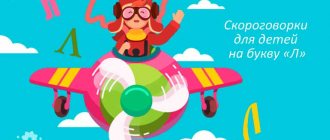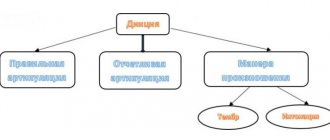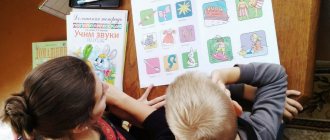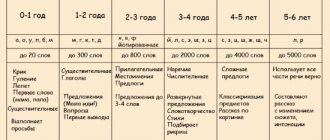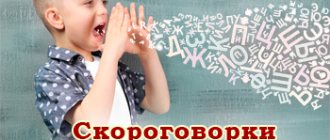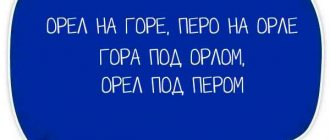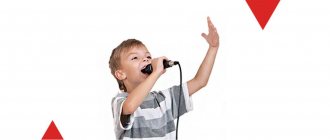Tongue twisters (F)
The ground beetle is buzzing, buzzing, but not spinning. * * * A beetle is buzzing over the lampshade, a ground beetle is buzzing, buzzing, spinning. * * * The bunnies trembled when they saw a wolf on the lawn. * * * I planted seedlings from seedlings to seedlings. * * * Zhenya became friends with Zhanna. Friendship with Zhanna did not work out. To live amicably with friends, you don’t need to offend your friends. * * * Already the snakes are in a puddle. * * * I met a hedgehog in the thicket, - How is the weather, hedgehog? - Fresh. And they went home, trembling, hunched over, cowering, two hedgehogs. * * * In the hut, a yellow dervish from Algeria rustles with silks and, juggling with knives, eats a piece of fig. * * * A beetle is buzzing over the honeysuckle. The casing is heavy on the beetle. * * * Hedgehog, hedgehog, where do you live? Hedgehog, hedgehog, what are you talking about? * * * A hedgehog lies by the Christmas tree, the hedgehog has needles, And below, looking like little hedgehogs, Last year’s cones lie on the grass. * * * Hedgehogs and snakes lived in a living corner. * * * Bumblebees Bumblebee Bumblebee Buzzes: “Friendly life!” There are a thousand specks of dust on you! You've already soiled your whole belly with pollen!” Adjusting His vest, Bumblebee Hugs to Bumblebee In response: “This is not pollen at all, This is face powder. On my sides and on my back I carry her to my w-wife!” V. Ivanova * * * It’s already midnight... Creepy. A beetle is buzzing and circling above the burning yellow lampshade. Lie. In orange yarn I see openwork wings. The pearl circle is buzzing, circling, And in the slurry of words I terribly hear: I am a beetle!... I am a beetle!.. I live the night. I'm buzzing, I'm buzzing, I'm circling, I'm lying above the burning yellow lampshade, I don't spare the lights, I'm licking the lights, I'm buzzing through my life, I'm going to burn myself, And I don't grieve, And I don't grieve, I'm a bug! R.Sef * * * The bear cub was frightened. Hedgehog with a hedgehog and with a hedgehog, Swift with a swift and with a haircut. * * * Hedgehogs became friends with mice in the rye. They went into the reeds - and there were no souls in the rye. * * * The snake was bitten by the snake. I can't get along with the snake. I’ve already become narrower from horror - the snake will eat it for dinner. * * * The hedgehog has a hedgehog, the grass snake has a squeeze. * * * I already granted the New hedgehogs a dozen pajamas. The old pajamas were punctured by hedgehogs. * * * Centipedes have too many legs. Whey from yogurt. From the clatter of hooves, dust flies across the field. Three little birds are flying through three empty huts. Forty mice walked, carrying forty pennies; Two smaller mice carried two pennies each.
- < Back
- Forward >
Tongue twister with the words ram drum
Text of the tongue twister:
The ram beat the drum.
The duck blew the trumpet. Drum-drum! Buzzer pipe! The ram took the drum and exchanged it for a pipe... The ram blows on the pipe. The duck is drumming. A tongue twister is a phrase in which the words are chosen in such a way that articulatory difficulties arise when pronouncing them. This is due to the presence and location of sounds that cause difficulty in pronunciation.
Tongue twisters, as we already wrote on ChuDetstvo.ru, are considered a small folklore genre. It is worth distinguishing tongue twisters from pure tongue twisters, which are important to pronounce clearly and not quickly.
The use of tongue twisters in classes with children contributes to: - the development of diction, speech organs, phonemic hearing of the child, memory, imagination; - awakening interest in the beauty and richness of the Russian language, folk traditions, history; — vocabulary development; - conducting complex articulation exercises in a fun way.
There are classifications of tongue twisters according to complexity (simple - complex), length (large - short), time of creation (ancient Russian - modern), frequency of the sound that is practiced in it. In simple tongue twisters, one or two sounds are practiced. Classification by sounds and sound combinations allows you to select tongue twisters for pronunciation correction.
Working with tongue twisters, aimed at developing diction, articulation, and expressiveness of oral speech, takes place in several stages: - pronounce each word slowly, syllable by syllable, in order to learn the content of the tongue twister and the pronunciation of sounds; - articulation exercises (in front of a mirror or with friends). Sounds should be read by lips; - pronouncing the phrase in a whisper (sounds must be pronounced clearly); - the entire text is spoken loudly with expression, you can vary the intonation (say it as a question, cheerfully, sadly, etc.); - say at a fast pace.
The stages of working with a tongue twister are somewhat different when it is used in speech therapy classes: - write it down, put an emphasis on each word, conduct a phonetic analysis of the words and write it down; - group the words and pronounce them in groups, then pronounce the entire phrase while exhaling; - only after that speed up the tempo of pronunciation.
When introducing a tongue twister to a child, you need to pay attention to its content and explain the meaning of outdated or unfamiliar words. Tongue twisters can be used not only in class, but also during recreation. You can invite children to hold a tongue-talking tournament, which includes tasks: - who can speak faster; - who will not make a single mistake; - who can guess the tongue twister from the lips; — sing (different styles are specified: lullaby, march, rock).
✨One hundred legal ways to make money at home✨
Did you like the article? Tell your friends about it.
Tongue twisters (B)
Varvara was guarding the chickens, and the crow was stealing. * * * The doctors saved the sparrow and carried him into the helicopter. The helicopter spun the wines, disturbed the grass and flowers. * * * Open the gate, Uvar, there is firewood on the grass near the yard. * * * The sorcerer did the magic in the stable with the wise men. * * * Squeeze out the water, sky. don't let the bread down. * * * The water carrier was carrying water from under the water supply. * * * You don’t wear trousers instead of a shirt, Don’t ask for rutabaga instead of a watermelon, Always distinguish a number from a letter, And can you distinguish between ash and beech? * * * We bought Valerika and Varenka mittens and felt boots. * * * Valerik ate dumplings, and Valyushka ate cheesecake. * * * The crow missed the little crow. * * * The cook cooked the porridge, overcooked it, and undercooked it. * * * The big guy Vavila merrily moved his pitchfork. * * * The driver was carrying straw. * * * We are greatly influenced by the words of exquisite script. * * * Valya got her felt boots wet in the thawed patch. Valenka’s felt boots are drying on the heap. * * * Valenka’s felt boots fell into the clearing. * * *
Tongue twisters (E)
Lena barely ate; she didn’t want to eat out of laziness. * * * The hedgehog washed his ears, neck, and skin on his belly in the bathhouse. And the hedgehog said to the raccoon: Won’t you rub my back? * * * Barely Elizar, he goes and goes to the market. And from the market, and from the market, You won’t catch up with Elizar. * * * The wind rustles the fir trees, Our hedgehog is in a hurry to go home. And a wolf meets him, a click of his teeth at the hedgehog. The hedgehog showed his needles, the Wolf ran away in fear. * * * We ate, ate, ate, Ruffs from the spruce... We barely finished them off from the spruce. * * * Three waxwings barely whistled on the spruce. * * * No matter how much the sieve ate, I was never full. * * * The sun looked through the crack, hanging down the fiery bang. * * * Emelya spends a week spinning a box of tow, and Emelina’s daughter spends one night spinning. * * * Today I was delighted with the entertainer Egorka, For his tongue twisters I would give fives! * * * The hedgehog has a hedgehog, the snake has a snake. * * *
Tongue twisters (D)
The woodpecker was pecking at the oak tree, but he didn't finish it. * * * Woodpecker, woodpecker, my friend, is chiseling an oak tree like a chisel. Help me, Uncle Tittle, Build a House for the Starlings. * * * Grandfather Dodon played the pipe, Grandfather hit Dimka with the pipe. * * * Oaky oak, broad green-leaved. * * * In our yard, courtyard, the weather has become wet. * * * A horse with a rider, Yes, without a saddle or bridle, without a girth and a bit. * * * Two woodcutters, two woodcutters, Two woodcutters sharpened their axes, The axes are sharp for the time being, The axes are sharp for the time being. The quonka walks around the yard, leads the children around the cages. * * * Domna doesn’t clean the house, Domna’s house is all upside down * * * Grandfather Danila divided the melon, a slice for Dima, a slice for Dina. * * * You, well done, tell the well done, Let the well done tell the well done, Let the well done tie the calf. * * * There’s a honey cake for honey, but I’m not in the mood for a honey cake. * * * One firewood, two firewood, three firewood. * * * Lada gave Nadya incense * * * Don’t blow your lips on the oak tree, Don’t blow your lips on the oak tree. * * * The woodpecker is chiseling the tree, chiseling the bark all day long. * * * The two of us will understand everything and go on the rise * * * The tar man was walking, but I had no time for the tar man, no time for the tar man’s wife. * * * Grass in the yard, firewood on the grass. * * * A woodpecker treats an ancient oak tree, A good woodpecker loves the oak tree. * * * Daria gives Dina melons. * * *
Tongue twisters (D)
Margarita collected daisies on the mountain, Margarita lost daisies in the yard. * * * You can’t talk through all the tongue twisters, you can’t talk over all the tongue twisters. * * * Our head over-headed your head, over-headed. * * * Cucumbers - well done green-white-lipped ones * * * Thirty-three Egorkas stand on a hill, on a hill. * * * There were wolf cubs visiting wolf cubs, There were wolf cubs visiting wolf cubs, Nowadays wolf cubs are making noise like jackdaw cubs, And like wolf cubs, the jackdaw cubs are silent. * * * Counting table - Geese, ha-ha-geese, Where will you run? -Ha-ha-goslings are happy to nurse, To beg for the horns of the galik, To walk with the ga-goose, But to wag the ga-ha-gas. Dina Krupskaya * * * The Ligurian traffic controller was regulating in Liguria. * * * The messenger from the galleys burned to death. * * * The bull is blunt-lipped, the bull is blunt-lipped, the bull has a white lip and is blunt. * * * A loon was flying over the barn, and another loon was sitting in the barn. * * *
Introduction
For every person, no matter what country he was born in, no matter what nation he belongs to, it is important to know his native word, feel and understand it. After all, it is through words, through our native language that we learn to understand and love life, the surrounding nature, and people. And nothing helps us in this more than folk art: songs, ditties, proverbs, sayings, jokes, tongue twisters and riddles, signs, fairy tales.
This book contains the unique, incomparable experience of the Russian people in educating the younger generation.
If you want your children to grow up spiritually developed and respect their people and their country, instill in them a love of oral folk art. And it’s better to start doing this from the cradle, from early childhood, when babies are open to accepting new information, listen with pleasure and repeat what adults tell them.
Sing songs and ditties to your child, dance in circles with him, learn simple and complex tongue twisters together, play riddles, explain events from life, using various folk proverbs that you will find on the pages of this publication.
In this way, you will teach your child to actively perceive the surrounding space, creatively master it, constantly move and develop, train memory and speech, and quickly find innovative solutions to complex problems.
It is impossible to deny the educational role inherent in folklore works. By performing any of them with your children, you instill in them a sense of justice, teach them kindness, love, care, honesty, independence, and form a positive emotional and mental state in them.
